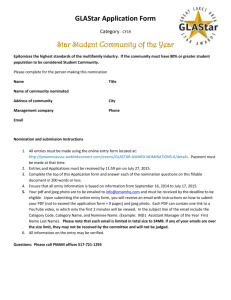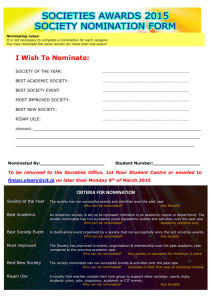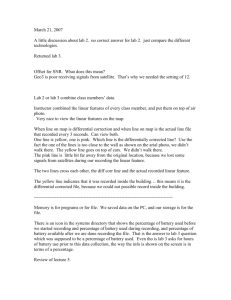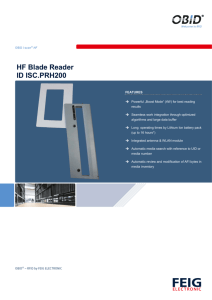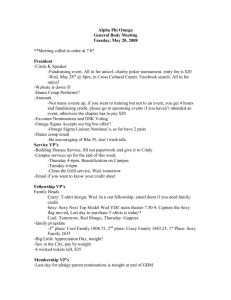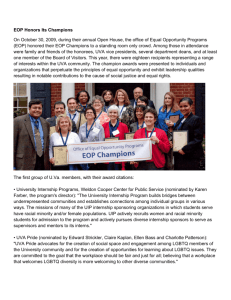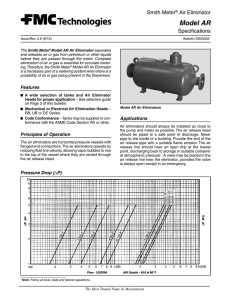Test Samples and Documentation Required for Test
advertisement
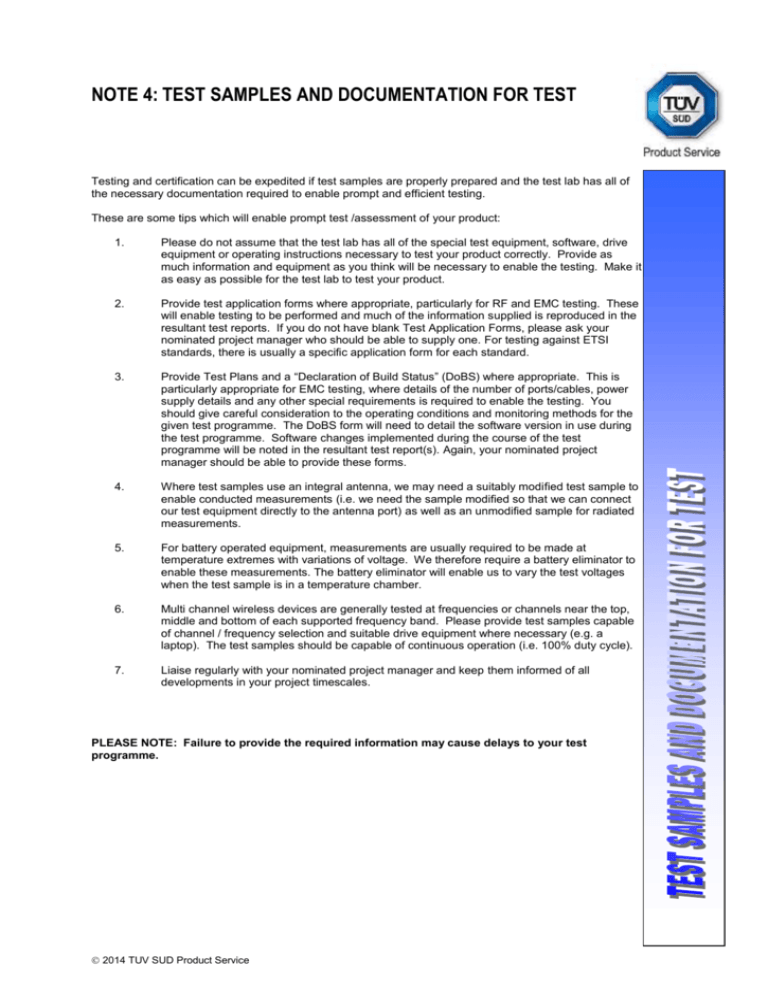
NOTE 4: TEST SAMPLES AND DOCUMENTATION FOR TEST Testing and certification can be expedited if test samples are properly prepared and the test lab has all of the necessary documentation required to enable prompt and efficient testing. These are some tips which will enable prompt test /assessment of your product: 1. Please do not assume that the test lab has all of the special test equipment, software, drive equipment or operating instructions necessary to test your product correctly. Provide as much information and equipment as you think will be necessary to enable the testing. Make it as easy as possible for the test lab to test your product. 2. Provide test application forms where appropriate, particularly for RF and EMC testing. These will enable testing to be performed and much of the information supplied is reproduced in the resultant test reports. If you do not have blank Test Application Forms, please ask your nominated project manager who should be able to supply one. For testing against ETSI standards, there is usually a specific application form for each standard. 3. Provide Test Plans and a “Declaration of Build Status” (DoBS) where appropriate. This is particularly appropriate for EMC testing, where details of the number of ports/cables, power supply details and any other special requirements is required to enable the testing. You should give careful consideration to the operating conditions and monitoring methods for the given test programme. The DoBS form will need to detail the software version in use during the test programme. Software changes implemented during the course of the test programme will be noted in the resultant test report(s). Again, your nominated project manager should be able to provide these forms. 4. Where test samples use an integral antenna, we may need a suitably modified test sample to enable conducted measurements (i.e. we need the sample modified so that we can connect our test equipment directly to the antenna port) as well as an unmodified sample for radiated measurements. 5. For battery operated equipment, measurements are usually required to be made at temperature extremes with variations of voltage. We therefore require a battery eliminator to enable these measurements. The battery eliminator will enable us to vary the test voltages when the test sample is in a temperature chamber. 6. Multi channel wireless devices are generally tested at frequencies or channels near the top, middle and bottom of each supported frequency band. Please provide test samples capable of channel / frequency selection and suitable drive equipment where necessary (e.g. a laptop). The test samples should be capable of continuous operation (i.e. 100% duty cycle). 7. Liaise regularly with your nominated project manager and keep them informed of all developments in your project timescales. PLEASE NOTE: Failure to provide the required information may cause delays to your test programme. 2014 TUV SUD Product Service




